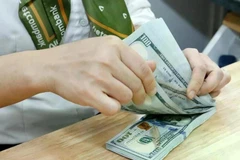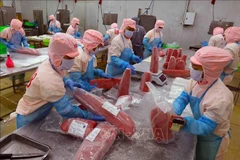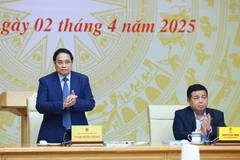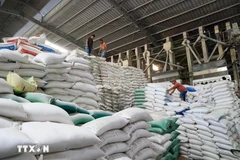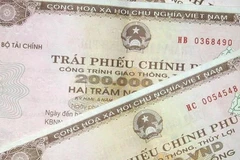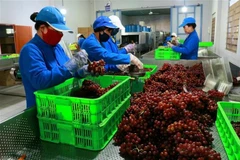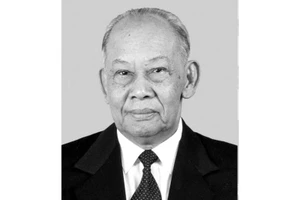Goals for developing the nation's stock market were announced during aMar. 2 conference held by the State Securities Commission in Hanoi.
The conference coincided with Prime Minister Nguyen TanDung's move the same day to order the Ministry of Finance, the Ministryof Planning and Investment and the State Bank of Vietnam to closelycoordinate on long-term measures to secure the development of themarket.
One of the highlights of his request was the needto develop new products such as global depository certificates, as wellas the need to establish a derivatives market.
Dung also urged the finance ministry to complete its scheme for the bond market by the second quarter of this year.
"The volume of Government bonds should be increased, rather than thetypes of bonds, in order to raise more funds for the economic and socialneeds of the State," he wrote .
Dung also told theMinistry of Planning and Investment to assess the process of convertingforeign-invested enterprises into joint stock companies.
The Government has signed three significant documents on the development of the stock market in the past two days.
"This proves that the Government and relevant ministries have beenconsistently concerned about the short- and long-term development of themarket," said Minister of Finance Vuong Dinh Hue.
Theprocess of restructuring the stock market this year will have fourfocuses, namely products, the structure of investors, securitiescompanies, and the system of stock exchanges and the Vietnam SecuritiesDepository Centre, Hue said.
While investors expectedthe nation's two stock exchanges to be merged this year, StateSecurities Commission chairman Vu Bang said a plan to govern the mergerwill be submitted to the Government in the third quarter.
"Execution of the plan would then probably take place about six monthslater," Bang said, predicting that both exchanges would continue tooperate but ultimately under the management of a single stock exchangeagency.
"Stocks will shift to trading in HCM City ,while the Hanoi branch will mainly focus on developing specialisedproducts such as derivatives and unlisted shares," he said.
Starting next month, Minister Hue said, brokerages will be divided intothree groups, categorised as "normal", "under control" and "underspecial control".
The first group will include those witha ratio of usable capital to total risks of over 150 percent andaccumulated losses of less than 30 percent of charter capital. Companies"under control" will include those with a usable capital ratio under120 percent and accumulated losses in excess of 50 percent of chartercapital. These firms will be required to diminish brokerage operationsor be dissolved if unable to resolve their difficulties.
"The number of securities firms will definitely be reduced," Huesaid. "However, it will take time to determine how many will be cut."
Bang said market regulators are paying strict attention to the market's investor structure.
"We should pay attention to enhancing the quality of institutionalinvestors along with reviewing tax policies for both individual andorganisational investors in a manner that encourages long-terminvestment and investment funds," he said.
Institutionalinvestors currently account for only 4 percent of total trading accountsand are mainly insurers and investment funds, he said, while openfunds, securities development companies and voluntary pension funds havenot yet developed.
In terms of new products on themarket, in addition to derivatives and new kinds of certificates, thecommission's fund management division has suggested insurance servicessuch as export credit insurance, agriculture insurance and lifeinsurance linked with investment./.



